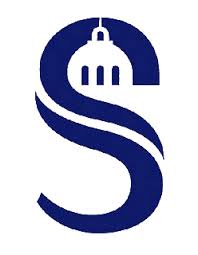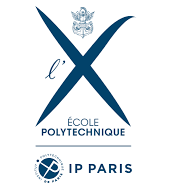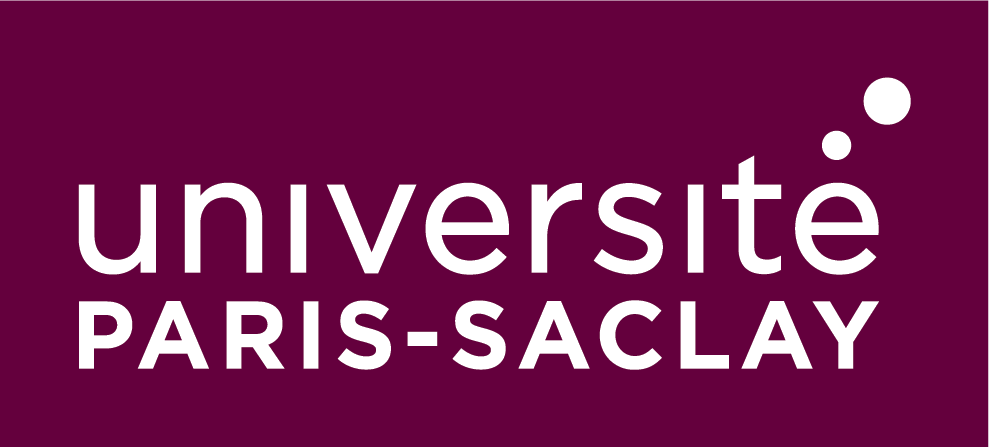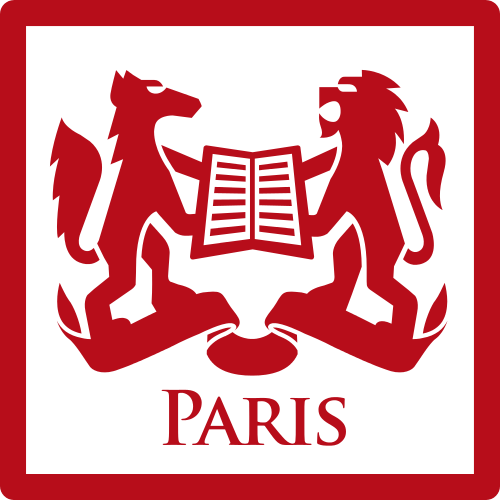Top Universities in FRANCE
When deciding which university to study at, it is crucial that you also look at the world university rankings. Study in FRANCE offers you access to some of the world’s top institutions.
More About France
France, located in Western Europe, is renowned for its rich cultural heritage, historical landmarks, and global influence in art, science, and politics. Famous for its luxurious lifestyle, gastronomy, and fashion, France is a leader in fields such as design, architecture, and culinary arts. Paris, the capital, is known as the "City of Light" and is home to world-famous landmarks such as the Eiffel Tower, Louvre Museum, and Notre-Dame Cathedral.
Documents Required to Study in France
- Valid Passport: Ensure your passport is valid for at least 3 months beyond the duration of your stay.
- Letter of Acceptance: An official letter from a recognized French educational institution confirming your enrollment.
- Proof of Financial Means: Evidence that you can support yourself financially while studying in France (bank statements, scholarship letter, sponsor letter).
- Proof of Accommodation: A document confirming where you will stay during your studies (e.g., university dormitory, rental agreement).
- Academic Transcripts and Certificates: Copies of your previous educational qualifications, including transcripts, diplomas, and certificates.
- English/French Language Proficiency: Proof of proficiency in either English or French, depending on the language of instruction (e.g., IELTS, TOEFL, DELF).
- Health Insurance: Proof of valid health insurance covering you during your stay (either through a French provider or international insurance).
- Passport-Sized Photos: Usually two recent passport-sized photos that meet the visa requirements.
- Visa Application Form: A completed visa application form for a student visa.
- Statement of Purpose: A letter explaining why you want to study in France, your course choice, and future career plans
Documents Required for France Study Visa
- Valid Passport: The passport must be valid for at least 3 months beyond your intended stay.
- Visa Application Form: The completed long-stay visa application form for France.
- Letter of Acceptance: The official admission letter from a French institution.
- Proof of Financial Support: Bank statements, sponsorship letter, or scholarship documentation to prove that you can cover living expenses.
- Health Insurance: Proof of adequate health insurance covering your stay in France.
- Passport-Sized Photos: Typically two recent passport-sized photos meeting French visa specifications.
- Proof of Accommodation: Document confirming where you will be staying during your studies in France.
- Proof of Academic Qualifications: Transcripts and diplomas from your previous studies.
- Visa Fee Payment: Payment receipt of the visa application fee.
- Travel Itinerary: Information about your travel dates and flight bookings (if required).
Popular Courses In FRANCE
Courses in humanities, engineering, business and arts are very popular in France. Sciences Po is excellent in political science and international relations; École Polytechnique and Paris-Saclay for engineering and computer science. Many international students choose to follow art, design or fashion programs at Paris College of Art.

Scholarships in FRANCE
- Eiffel Excellence Scholarship Program
- Charpak Scholarship
- Emile-Boutmy Scholarship
- Université Paris-Saclay International Master’s Scholarships
- The French Government Scholarship (Campus France)
- INSEAD Scholarships
- École Normale Supérieure (ENS) International Selection Scholarships
- Bourses de la Ville de Paris
- MOPGA (Master’s Degree in Public Governance) Scholarship
- The Fondation de France Scholarships
Study in FRANCE: Additional Tips
Deadlines
Be aware of application deadlines, which can vary significantly between institutions.
Research
Each school may have specific requirements, so always check the school’s website for detailed information.
Interviews
Some programs may require an interview as part of the application process.
If you have a specific school or program in mind, it’s best to check directly with them for the most accurate requirements.
Study in France- The Roadmap With Class24
With Class24 studying in the FRANCE is a structured step by step process which helps the student in getting application through, understanding visa procedure and selecting best courses for the student. The thorough support provided by this allows the students to make the best decision they can to support their academia in the FRANCE.
Highest-Paying Jobs in France
In France, most highly paid jobs are placed in technological, financial and healthcare industries. Some of the highest earning people are Chief Executive Officers (CEOs) and high ranking executives in multinational corporations. Big paying positions are also found amongst the financial professionals like investment bankers, private equity managers or actuaries. Software engineers, data scientists and IT directors are the ones the tech sector pays well, especially in major European cities, such as Paris. As their expertise and training are very high, they earn a handsome amount of money. Corporate lawyers or lawyers experienced in mergers and acquisitions also make the big bucks. Also, positions in management consultancy such as those with McKinsey or BCG provide very good pay as you possess specialised knowledge or strategic insight. They are not far from mirroring the needs for expertise, leadership and expertise in the French economy.
Here’s a look at some of the highest-paying jobs in France:
| Job Title | Average Base Salary (2024) |
|---|---|
| Anesthesiologist | ~$450,000 |
| Surgeon (Specialist) | ~$400,000 |
| Oral and Maxillofacial Surgeon | ~$400,000 |
| Obstetrician and Gynecologist | ~$350,000 |
| Psychiatrist | ~$250,000 |
| Physician (General Practice) | ~$220,000 |
| Dentist | ~$200,000 |
| IT Manager | ~$150,000 |
| Software Engineering Manager | ~$140,000 |
| Data Scientist | ~$130,000 |

Get Admission into top FRANCE universities with the help of expert counsellors
Save up-to ₹3 Lakhs with us!*
Discuss with Expert for FREEBenefits

High Quality Education
French universities are renowned for their high academic standards, offering exceptional education, coupled with cutting-edge research and hands-on learning experiences.

Various Study Programmes
Many universities in France offer a wide range of English-taught programs, particularly for Master's and Ph.D. students, making it an attractive destination for international students.

Opportunities post graduation
France offers diverse job opportunities in sectors such as technology, engineering, business, and arts, providing graduates with a solid foundation for their careers.

Cultural diversity
France is home to a vibrant multicultural society, creating a welcoming environment for international students and encouraging global interactions.

Work
International students in France can work part-time during their studies, with flexible work regulations that allow students to gain professional experience and support living expenses.

English Language Advantage
With high proficiency in English, many universities in France offer programs in English, allowing international students to study without the need for French language proficiency.

Research and Innovation
France is a leader in research and innovation, providing students access to state-of-the-art facilities and offering opportunities to engage in groundbreaking research across various fields.

Historical and Cultural Experience
France offers a unique blend of rich history, artistic heritage, and modern culture. Students can explore world-famous landmarks, museums, and enjoy an immersive cultural experience.

Alumni networks are strong
French universities have strong alumni networks, providing students with access to valuable career connections and professional opportunities long after graduation.
Monthly Living Expenses in FRANCE
Daily living costs in the United Kingdom vary mostly with region and your lifestyle. Here’s an in-depth look:

Accommodation:
Shared apartments in France cost between €300 and €700 per month, while university residences range from €150 to €600, subsidized by the government. In Paris, private rentals typically cost €800 to €1,200 per month.

Food and Groceries
Groceries in France typically cost between €200 and €300 per month. Dining out at a mid-range restaurant usually costs between €12 and €20 per meal.

Transportation:
A monthly public transport pass in France costs between €30 and €75, with discounts available for students. Many cities also offer free or subsidized bike-sharing programs.

Miscellaneous Costs
Miscellaneous costs in France, including entertainment, personal items, and other activities, typically range from €50 to €150 per month, depending on lifestyle and preferences.
Low
High
Study Abroad Made Simple
Increase your chances of admission upto70%
The FRANCE is one of the country’s booming economies. This is the reason that international students go to the United States.
Request a CallbackKnow Real Stories of Real People, How They Went from India to Abroad!
Get ready to be inspired by the incredible story of students who turned their dreams into reality.
- Free counselling sessions by an educational consultant
- Database of multiple reputed universities under one roof
- Trustworthy and affordable overseas study plans
Document Get Help in Handling All the Legal Papers
The help that one can get with handling legal documents helps to make sure that all of the required paperwork is managed properly and efficiently. From immigration to contracts, whether you need these services for immigration, contracts for academic requirements, professional services can make it easy for you to travel the thorny legal path. Working with these experts, document preparation, submission deadlines and compliance with local laws are brought under control and thus the risk of making errors or delays is reduced. Without understanding legal documents, people need help with legal document assistance, which ultimately reassures them and saves their time while coming up with important transactions.
Study in France 2025: Admission, Scholarships, Cost, Fees, Requirements & Job Opportunities
Study in France, one of the cultural, innovative and intellectual hubs of the world, France is the fourth largest popular study destination in the world, and is host to over 325,000 international students each year. Revered for its prominent universities, very little tuition of study at university in France and an extraordinarily exciting lifestyle, France is the brilliant place for higher studies in France with scholarships. If you research on the top study destinations for UG courses, PG courses or study in France without IELTS, you will come across the name France.
In this article, you will learn about the study in France cost, study in France visa process, entrance exam for study in France, study in France scholarships and to study in France universities India, by which you can get admission in the best colleges in France for Indian students. An accessible and welcoming country for the Indian student, France has over 3,500 higher education institutions, over 1,700 English taught programs and also ensures Classes Internationales for Indian students. I intend to explain why studying in France is a dream you should be striving for.
Why Study in France?
What is so appealing about France as a place to study is its combination of academic prestige with relative cost, cultural richness, and an education that is often delivered in the more practical and linguistic environment of a business that is co – owned and run by both English and native French speakers. So, here are the key reasons to study in France:
-
France has 35 universities in the QS World University Rankings 2024, of which four are in the top 100, namely Université PSL (24th) and Sorbonne University (59th).
-
Low Study in France university fees: Of Course the same can be enjoyed at the cost effective price as compared to the UK, USA, Australia.
-
More than 1,700 English Taught Programs: such as business, engineering, and humanities offer students the possibility to study in France without IELTS or French proficiency.
-
Learning Diverse Culture: From the Eiffel Tower to the French Riviera to the country’s countryside and cities, students learn a much different culture than the American counterpart.
-
Opportunities: France is the world’s fifth largest economy and has global giants such as L’Oréal, Airbus and TotalEnergies – it is a good place for jobs.
-
Scholarships and Funding: Study in France is free or at low cost through French Government scholarships, Eiffel Excellence, Erasmus Mundus, etc.
-
Post-Study Work Visa: For example, Indian students for a five-year post-study work visa through studying master’s and PhD, increases career prospects.
When it comes to pursuing higher studies in France with scholarships, France is one top choice for Indian students as France has programs which are tailored for Indian students like “Classes Internationales” and having bilateral agreements with India.
Study in France Requirements
International students looking to study in France need to fulfill several academic as well as language and administrative prerequisites. These vary by program, institution, and level of study. Here are the requirements to study in France for international students within an international university in France.
Academic Requirements For Study in France
-
Undergraduate (UG) Courses: the prospective candidates must have a High School Diploma or Equivalent (CBSE/ICSE 12th Class Certificate for Indian Nationals with a minimum of 60-70 % marks). The study of some programs requires an entrance exam in France as the SAT (1200 at a minimum) or the ACT (26 at a minimum).
-
Postgraduate (PG) Courses: A bachelor's degree that is appropriately related must be completed with a GPA of 3.0 on a scale of 4.0 (or equivalent). Academic transcripts (Board of Examinations authenticated) are necessary for programs like MBA or MS. Standardized exams like GRE (minimum 300) or GMAT (minimum 550) are necessary.
-
Grandes Écoles: École Polytechnique, along with the other Grandes Écoles, involve two years of preparatory classes (CPGE) concluded by very competitive entrance exams (such as the Concours Commun Polytechnique), the validation of which determines which one of these three studies will be undertaken by the student.
-
Doctoral Programs: Master’s degree in related field and a research proposal. Interviews or other programs might also be included in some programs.
Language Requirements Study in France
English-Taught Programs: 1,700 programs in English, with no need for IELTS to study in France. Accepted alternatives include:
-
TOEFL: Minimum score of 80–100.
-
Duolingo English Test: Minimum score of 105–120.
-
Proof of ability to learn in English: Medium of Instruction (MOI) Certificate.
-
In some instances, the institutions provide their own language tests.
-
It will even require an average IELTS score of 6.5, with no band scoring below 6.0.
Proficiency in French is required for their French-Taught Programs: and it is normally proved by:
-
DELF/DALF: B2 or C1 level.
-
TCF/TEF: Equivalent to B2 or higher.
-
Certain universities provide preparatory French lessons for students who have to enhance their skill in French.
Additional Requirements
-
Valid Passport: Copies of the first and last pages, valid for at least 3 months beyond the program’s duration.
-
Resume/CV: A resume/CV on my achievements at school, work and any extracurricular activities.
-
Statement of Purpose (SOP): a 500-1000 word essay explaining why you should be admitted, why you came to choose France and what you plan to do afterwards.
-
Recommendation Letters: 2–3 letters from academic or professional referees.
-
Financial Proof: The candidate should prove that he or she has the means (€615/month / ca €7,380/year) to support him or herself, for example by means of bank statements or sponsorship letters.
-
Health Insurance: Mandatory for long-term courses. France’s national health insurance is available to non-EU students (€20–50/month).
-
Proof of Accommodation: In housing confirmation issued by the university or a lease agreement.
Tip: Especially for study in France for UG courses or study in France for PG courses, each university has its own set of requirements (you may find that language tests can be waived or there are other requirements).
Study in France Visa Process
The process of studying for a French visa is quite simple, however, you have to prepare carefully. The long-term studies need a student visa to be taken up other than by the students, who are not from EU or EEA including the Indians. Below is a step by step guide of the France student visa requirements:
Types of Student Visas
-
Short-Stay Visa (Schengen Visa): For courses less than 3 month(s), requires a Short Stay Visa (Schengen visa) and no residence permit required.
-
Temporary Long-Stay Visa: This category is for the course of 3–6 months and the visa does not need to be validated upon arrival.
-
Long-Stay Visa ( VLS–TS): Validated in the country by means of a residence permit and affixed in the passport, it is needed for all courses of more than 6 months, within 3 months of arrival of the student in France.
Visa Requirements Study in France
-
Letter of Acceptance: Confirmation of enrollment by a recognized French institution.
-
Bank statements (or) sponsorship letters to show how you can afford (approximately) €7,380 per year (€615 per month).
-
Comprehensive health Insurance for the entire period of stay (€20–50/month).
-
University dormitory confirmation, Lease agreement or Host letters as proof of Accommodation.
-
Have a Valid Passport, which has at least another 3 months beyond the visa’s expiry after departure.
-
Completed and signed Visa Application Form, obtainable on the France-Visas website.
-
Passport-Sized Photos: Two recent photos meeting French visa standards.
-
EU/EEA nationals and Undocumented Children are exempt from the visa fee (€50 for countries using the “Etudes en France” procedure such as India and €99 for the others).
-
Mandatory for 69 countries, including India, for discussing study plan and motivations: Campus France Interview.
Step-by-Step Application Process
-
Register on “Etudes en France”: For 69 countries, including India, create an account on the EEF platform. Others apply directly to universities.
-
Complete Application: Upload academic transcripts, language certificates, SOP, CV, and financial documents.
-
Pay Fees: University application fees vary (€100–€500); EEF charges a service fee of €150–€200.
-
Schedule Campus France Interview: Discuss your study plans and motivations (30–45 minutes).
-
Submit Visa Application: Apply through the French consulate or VFS Global with all required documents.
-
Track Application: Monitor status via France-Visas or the EEF platform.
-
Validate VLS-TS: Upon arrival, validate the long-stay visa online through the OFII website and pay a €60 tax.
Processing Time and Rejection
-
Processing Time: For three months it has been asked to send the documents: that is two weeks before the departure date.
-
Denied Rate: In 2024 the visa was denied 15.7% of the time for various reasons including incomplete documents, lack of funds and mismatching of study plan.
Pro Tip: To facilitate your study in France visa process, make use of the free counseling services of Class24 Study Abroad Therefore, it is advisable to double check all the documents to avoid being at risk of rejection.
Study in France Cost Tuition and Living Expenses
If you're among the countries France is affordable for even half of an everyday person then that is one of the biggest advantages. Additionally, government subsidies cause the study in France cost to be lower than in countries like the UK, USA, or Australia. Below is a detailed breakdown:
Study in France University Fees
Public Universities:
-
Bachelor’s (Licence): €2,850/year for non-EU students.
-
Master’s: €3,879/year for non-EU students.
-
Doctoral Programs: €391/year (same for all students).
The range is similar between Private Universities: €3,000 to €10,000/year and this is where you will find some of the best business schools in Europe such as HEC Paris and INSEAD, charging anywhere between €20,000–€30,000 for MBAs.
At the Grandes Écoles (e.g. École Polytechnique, €14,900 for engineering), €2,572–€14,900/yr depending on institution, €1,714 (BTS) or €1,303 (BEP) by evening.
Living Costs
In terms of living expenditure, Paris is the most expensive one. To use as a reference, I have prepared an estimated monthly budget for international students.
Here is the Study in France Living Costs discussed below:
|
Expense |
Cost (€) |
Notes |
|
Accommodation |
400–1,200 |
Paris: €700–1,200; Lyon, Lille: €400–600 |
|
Food |
200–300 |
Cooking at home reduces costs |
|
Transport |
30–70 |
Student discounts on metro/bus passes |
|
Miscellaneous |
100–200 |
Books, leisure, phone, insurance |
|
Total |
800–1,300 |
Paris: €1,000–1,300; Other cities: €800–1,000 |
Additional Costs
-
CVEC Fee: €91/year for student union membership, mandatory for all students.
-
Health insurance: Non EU students: €20–50 per month will cover 70% of medical expenses.
-
Visa Fee: The Visa Fee has a range between €50–€99, depending on nationality and application process.
-
Language Courses: €1,000–€3,000 for preparatory French or English courses, if needed.
Cost-Saving Strategies
-
Private Rentals: Cost €300–€350/month, but you can find cheaper options near Luzinzhampo.
-
Student Discounts: Transport, museums, cinemas and restaurants with Students’ Discount.
-
Part-Time Work: Foreign students are allowed to take part time work up to 964 hours annually (20 hours a week) at €11.65 an hour; this equates to €11,221 annually and helps to offset some of the costs.
-
Budget Cities: Studying in Lille, Lyon or Toulouse: These cities are known as budget cities, living costs are 20–30% lower than the capital.
Note: the study in France cost can still be lowered down with study in France scholarships and part time work opportunities.
Study in France for Free: Scholarships and Funding Options
The cost of studying in France isn’t absolutely free, but there are several study in France scholarships that make the cost quite cheap. India is also the biggest scholarship country offering over 500 scholarships annually in Tuition, stay, traveling, etc to Indian students. Now here is how to study free or at least low cost in France.
Popular Scholarships
Here are the Study in France Popular Scholarships discussed below:
|
Scholarship |
Eligibility |
Benefits |
Application Deadline |
|
Eiffel Excellence |
Non-EU master’s/PhD students; academic merit |
€1,181/month (master’s); €1,700/month (PhD) |
January |
|
Erasmus Mundus |
EU/non-EU master’s/doctoral students |
Up to €25,000/year |
Varies by program |
|
Emile Boutmy (Sciences Po) |
Non-EU UG/PG students; academic excellence |
€6,500–€14,720/year (UG); €13,100 (PG) |
November–February |
|
French Government Scholarships |
Indian students; merit-based |
Tuition waivers, stipends |
March–April |
|
Charpak Scholarship |
Indian students; UG/PG programs |
€700/month, tuition waivers |
April |
Other Funding Options
-
University-Specific Scholarships: Institutions like Sorbonne University and Université Paris-Saclay offer merit-based grants (€1,000–€10,000/year).
-
Regional Scholarships: There are regional Scholarships offered by some French regions, such as Île-de-France that support international students.
-
Educational Loans: Indian banks like SBI and HDFC provide tuition loans along with accommodation and travel loans, both with repayment during 7–15 years.
-
Work-Study Programs: Part time jobs in retail, tutoring, or as an intern pay for living costs.
-
Crowdsourcing: One platform enables students to collect money for their studies such as GoFundMe: Crowdsourcing.
How to Apply for Scholarships
-
Research And Apply Early: A vast majority of French universities, including the Grandes Écoles, offer scholarship opportunities to students and the best approach to studying in France is to research early about the scholarship opportunities on your prospective universities’ pages, Campus France, French Embassy portals, etc. Read also: How To Apply for a French Student Visa.
-
Papers: Academic transcripts, Three recommendation letters, SOP, proof of financial need.
-
Apply Submit Applications: Through university portals, EEF or scholarship specific platforms.
-
Follow Up: The follow up part is to monitor the application status and respond to any extra requests, if any.
Tip: Increasing your chance, apply for multiple scholarships. Use your SOP to stress your academic achievements and line up the desires with the scholarship.
Study in France Without IELTS
There is a way students can study in France without IELTS for language tests. Many English taught programs exist in many universities and most of them accept alternative proofs of English proficiency. Here’s how:
Alternatives to IELTS
-
TOEFL: Minimum score of 80–100 in TOEFL recognized widely by all French universities.
-
Duolingo English Test: Minimum score of 105–120, a cost-effective option.
-
Medium of Instruction (MOI) Certificate: A certificate proving that your previous research education (i.e. bachelor’s degree) was taught in English, you do not need to prove English language proficiency (i.e. TOEFL, IELTS, or any other language tests).
-
University-Specific Tests: Institutions like Sciences Po and École Polytechnique conduct internal language assessments.
-
Interview-Based Assessments: In some universities, English proficiency is tested in admission interviews.
Top Universities Offering Programs Without IELTS
-
Université Paris-Saclay: Accepts English certificate TOEFL, Duolingo or MOI for English programs.
-
Sciences Po: Waives IELTS for students with English-medium education (e.g., CBSE/ICSE).
-
Sorbonne University: Offers flexible language requirements for programs in humanities and sciences.
-
École Polytechnique: Accepts alternative proficiency proofs for engineering and mathematics programs.
-
EDHEC Business School: Waivers for submitting IELTS for students with a strong academic record in English are offered at EDHEC Business School.
Tips for Studying Without IELTS
-
Varied requirements mean verifying university specific language policies.
-
For the language test waivers, provide strong academic transcripts and recommendation letters.
-
If your proficiency requires improvement, enroll in a pre-sessional English courses (€1,000–€3,000).
-
Make sure the alternative proofs meet France student visa requirements so that you would not encounter problems.
Note: Although you can study in France without IELTS, please ask the relevant university and the consulate to ensure whether you comply with the visa regulations.
Best Colleges in France for Indian Students
Some of the world’s leading top universities are situated in France, this makes it an ideal place for Indian students. The following list of the best colleges in France for the Indian student is based on the QS World University Rankings 2024:
Here are the Study in France Best Colleges discussed below:
|
University |
QS Ranking |
Popular Programs |
Tuition Fees (€/year) |
Scholarships Available |
|
Université PSL |
24 |
Humanities, Sciences, Engineering |
2,850–3,879 |
Eiffel, Emile Boutmy |
|
Sorbonne University |
59 |
Arts, Humanities, Medicine |
2,850–3,879 |
French Government, Erasmus |
|
Université Paris-Saclay |
71 |
Science, Technology, Medicine |
2,850–3,879 |
University grants, Eiffel |
|
École Polytechnique |
93 |
Engineering, Mathematics, Physics |
14,900 |
Excellence scholarships |
|
HEC Paris |
N/A (Business) |
MBA, Management, Finance |
30,000 (MBA) |
Merit-based grants |
Why Choose These Universities?
-
Global Recognition: A degree from these institutions is accepted globally by employers.
-
English-Taught Programs: For Indian students, there are over 1,500 programs taught in English.
-
Offers Dedicated Support: Assists Indian students with admissions, visas and integration with help of their international offices and programs such as ‘Classes Internationales’.
-
Generous funding options: French Government scholarships and university grants as well as scholarships.
-
Cultural Fit: They are appropriately close to home throughout their university tenure: culturally, Indian student associations and events provide a home-away-from-home experience.
Study in France for UG Courses
Undergraduate programs, known as Licence degrees, take three years and cover fields like business, engineering, fashion, and humanities. Here’s a detailed guide to study in France for UG courses:
Admission Requirements
-
Possesses 60–70% marks in High school diploma or equal (CBSE/ICSE 12th-grade certificate).
-
Minimum 1200 on SAT (or minimum 26 on ACT) for some programs.
-
Language proficiency: IELTS (6.5), TOEFL (80), or DELF/DALF (B2) for French programs.
-
Application through Parcoursup (for first-year UG) or directly to universities for international students.
Popular UG Courses
-
Business and Management
-
Engineering
-
Fashion and Design
-
Computer Science
-
Hospitality and Tourism
Costs
-
Tuition: €2,850/year for non-EU students at public universities.
-
Expenses: Depends on the city (€800–€1,300 per month).
Top Universities for UG Courses
-
Université PSL: Known for humanities and sciences.
-
Sorbonne University: Strong in arts and humanities.
-
Université Paris-Saclay: Ideal for science and technology.
-
Université de Strasbourg: Offers diverse programs and affordable fees.
Application Process
-
Contact a Program: Consult university websites or Class24 StudyAbroad for selection possibilities.
-
Apply: Parcoursup (by March) or university portals (deadlines vary).
-
Document Requirement: Transcripts, language certificates, SOP and LORs.
-
Fees: There is an application fee which goes from €100–€500.
Tip: Begin application for the applications early for study in France for UG courses as Parcoursup deadlines are strict.
Study in France for PG Courses
Two year masters in France are globally recognized degrees and are respected in a lot of fields of business and engineering, as well as social sciences. Here is a guide to study in France in a PG course:
Admission Requirements
-
Relevant bachelor’s degree with a minimum GPA of 3.0/4.0.
-
GRE (minimum 300) or GMAT (minimum 550) for standardized tests (if required for any of the University programs) like MBA or MS.
-
Language proficiency: IELTS (6.5), TOEFL (80), or DELF/DALF (B2/C1).
-
Academic transcripts, CV, SOP, and 2–3 recommendation letters.
Popular PG Courses
-
MBA (HEC Paris, INSEAD)
-
Engineering (École Polytechnique)
-
Data Science (Université Paris-Saclay)
-
International Relations (Sciences Po)
-
Fashion Management (IFM Paris)
Costs
-
Tuition: €3,879/year at public universities; €20,000–€30,000 at business schools.
-
Living Expenses: €800–€1,300/month.
Top Universities for PG Courses
-
HEC Paris: World-renowned for MBA and management.
-
INSEAD: Its business programs are globally top ranked.
-
Sciences Po: Leading in social sciences and international relations.
-
École Polytechnique: Elite engineering and science programs.
Application Process
-
Use the website: Class24 Study Abroad or the university’s website.
-
Apply Online: Apply for universities through university portals or apply through EEF (deadlines: November–March).
-
Submit Documents: Transcripts, test scores, SOP and recommendation letters to be submitted.
-
Attend Interviews: Some programs ask you to attend interviews or conduct some other types of assessment.
Note: French PG courses study deadlines are earlier (September to January) in French business schools such as HEC Paris and INSEAD.
Higher Studies in France with Scholarships
The study of higher studies in France with scholarships for international students is viable. Scholarships also help ease the financial barriers toward admission in prestigious institutions. Key points:
Benefits of Scholarships
-
Provide for coverage of tuition fees, living expenses, trips etc.
-
Prestigious awards such as Eiffel Excellence can increase your chance at getting a CV.
-
Provide an opportunity for networking with global scholars and professionals.
How to Secure Scholarships
-
Keep applying yourself at an academic level by maintaining a strong academic record (GPA 3.5/4.0 or equivalent).
-
The students then should highlight aspects of extracurricular achievements such as sports, leadership or community service.
-
Apply early, as most deadlines are in November–April.
-
Draft a well written and exciting SOP but the goal of yours should match with the goal of the scholarship.
How to Study in France A Step-by-Step Guide
Are you all set for your tour to Study in France? Follow this comprehensive guide:
-
Research Programs and Universities: Class24 Study Abroad, Universities’ websites, or QS rankings for Research Programs and Universities.
-
Confirm Your Eligibility: Meet academic, language and financial testing.
-
Apply to Universities: Apply to universities: Submit applications through university portals or by filling forms such as Parcoursup for UG, EEF for admissions.
-
Secure Funding: Apply for study in France scholarships, loans or part – time work.
-
Apply for Visa: If you happen to be part of Rocky Mountain District businesses subject to the Yellow Card exemption, you can apply for Visa by submitting your documents to VFS Global or the French Consulate.
-
Book University Dorms: €200 – €400 per month (or) Private Rentals.
-
Campus France: Health insurance: Purchase as soon as you know your last name and department; Campus France online link available by end of August. Flights: Book as soon as possible. Complete pre-departure sessions.
-
Arrival in France: Validate your VLS-TS, subscribe to a university, and start your studies.
Pro Tip: Attend Campus France’s pre departure webinars in using their tips to settle in France including banking and transport.
Conclusion
study in France gives you a special taste of academic excellence and affordability in addition to cultural immersion. France is an excellent choice of country for Indian students as well as international students since the study in France university fees is low and there are many study in France scholarships and the possibility to study in France without IELTS. France – an academic prestige of Université PSL to the vibrant streets of Paris – guarantees a rewarding educational experience.
Frequently Asked Questions

Cast Your Eyes Upon Our Newest Article

Student Visa for Dubai 2026: Application Process, Eligibility, Cost, Work Rights & Latest Rules
Dubai has been quick to become a global education destination of choice for international students. Offering internationally recognised universities, industry-focused courses, innovative facilit...
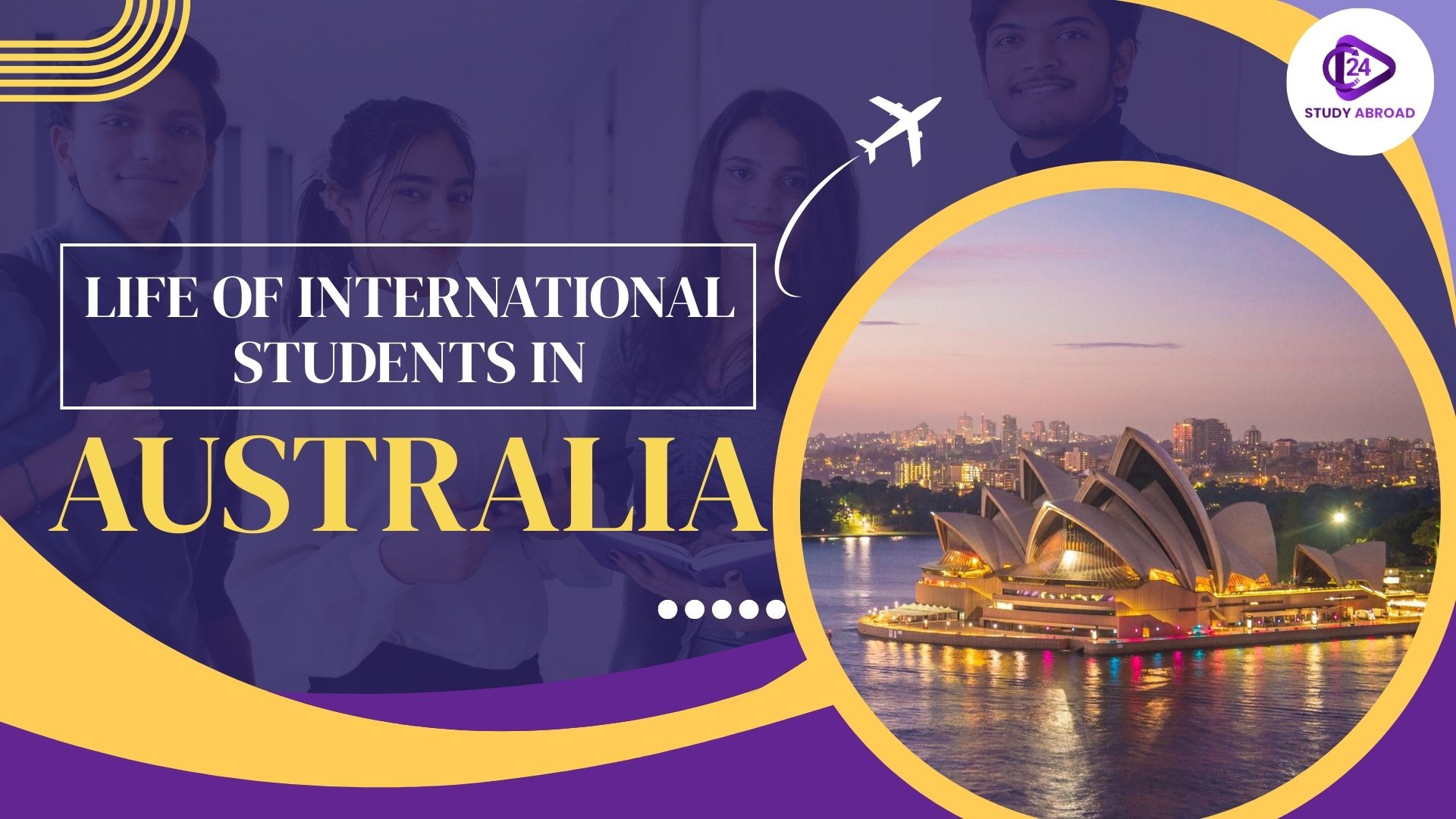
Life of International Students in Australia: Cost of Living, Climate, Culture, Housing & Safety
Australia has emerged as one of the most desirable places of study to international students. Australia is a preferred location with world-class universities, globally recognised degrees, part-t...

Top 10 Medical Universities Abroad in 2025
In order to study medicine at a foreign university, it is possible to access high-quality training, advanced research, and a career at the international level. With the increasing needs of skill...


